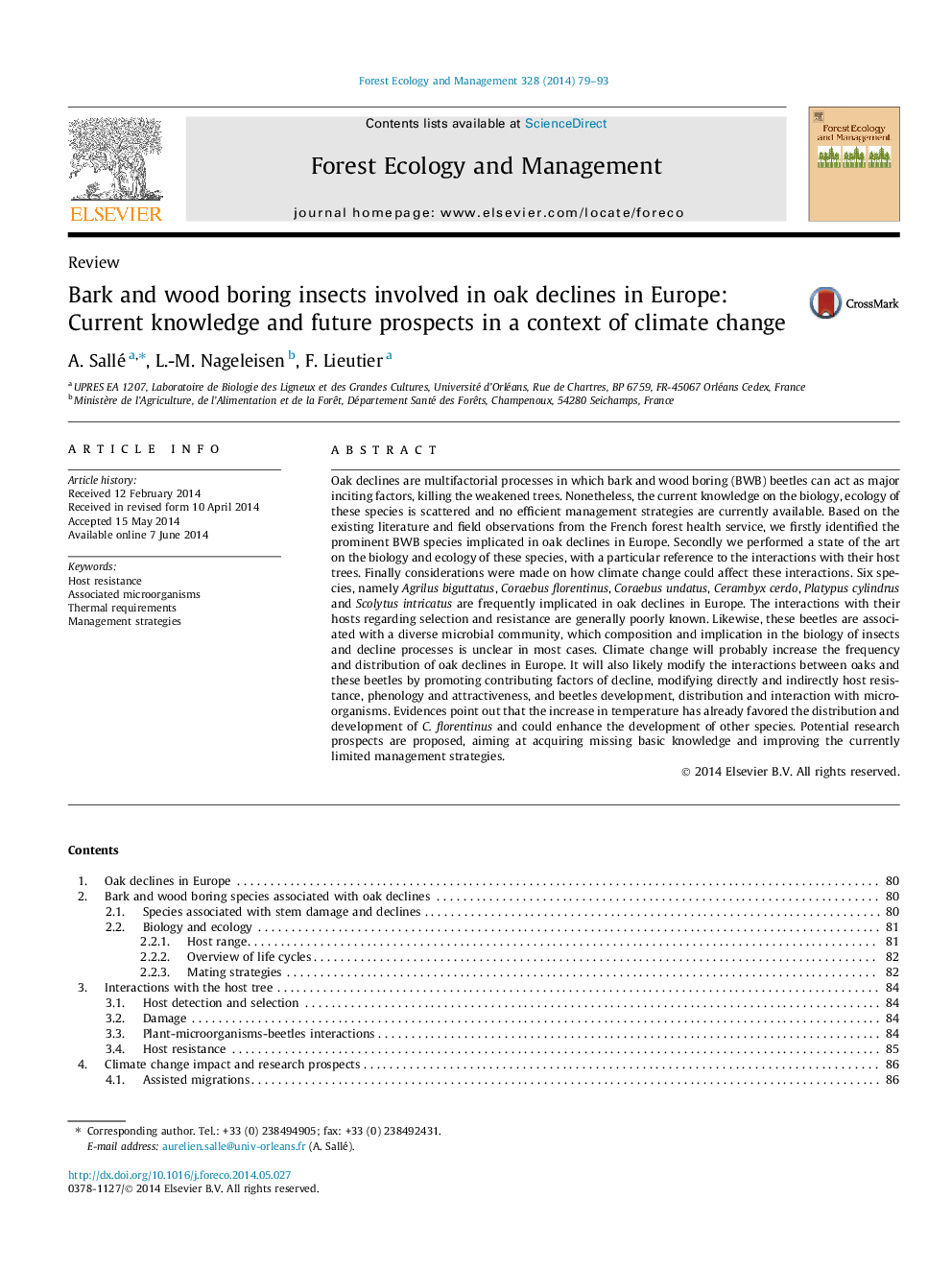| کد مقاله | کد نشریه | سال انتشار | مقاله انگلیسی | نسخه تمام متن |
|---|---|---|---|---|
| 86507 | 159194 | 2014 | 15 صفحه PDF | دانلود رایگان |
• A few beetles play a prominent role as inciting factors in oak declines in Europe.
• Climate change will probably enhance their impact on declining oak stands.
• The knowledge on interactions of beetles with oaks is still superficial.
• The composition and role of the associated microbial community need clarification.
• For prediction purposes, several thermal requirements should be acquired.
Oak declines are multifactorial processes in which bark and wood boring (BWB) beetles can act as major inciting factors, killing the weakened trees. Nonetheless, the current knowledge on the biology, ecology of these species is scattered and no efficient management strategies are currently available. Based on the existing literature and field observations from the French forest health service, we firstly identified the prominent BWB species implicated in oak declines in Europe. Secondly we performed a state of the art on the biology and ecology of these species, with a particular reference to the interactions with their host trees. Finally considerations were made on how climate change could affect these interactions. Six species, namely Agrilus biguttatus, Coraebus florentinus, Coraebus undatus, Cerambyx cerdo, Platypus cylindrus and Scolytus intricatus are frequently implicated in oak declines in Europe. The interactions with their hosts regarding selection and resistance are generally poorly known. Likewise, these beetles are associated with a diverse microbial community, which composition and implication in the biology of insects and decline processes is unclear in most cases. Climate change will probably increase the frequency and distribution of oak declines in Europe. It will also likely modify the interactions between oaks and these beetles by promoting contributing factors of decline, modifying directly and indirectly host resistance, phenology and attractiveness, and beetles development, distribution and interaction with microorganisms. Evidences point out that the increase in temperature has already favored the distribution and development of C. florentinus and could enhance the development of other species. Potential research prospects are proposed, aiming at acquiring missing basic knowledge and improving the currently limited management strategies.
Journal: Forest Ecology and Management - Volume 328, 15 September 2014, Pages 79–93
